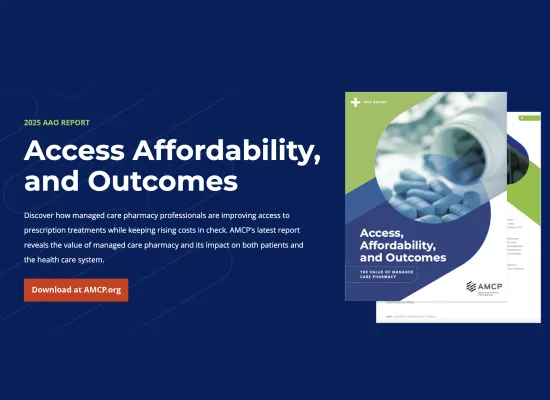
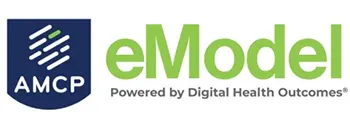
AMCP eModel is the ultimate tool for communication of health economic models and value evidence. Find out more about the new ePoster offering through this tech partnership and platform to support the exchange of clinical and economic information between pharmaceutical companies and payers.

AMCP partners with FormularyDecisions to enhance information sharing and formulary decision-making by creating a platform for current, credible, and compliant information exchange between life science companies and active, qualified healthcare decision-makers.
Featured

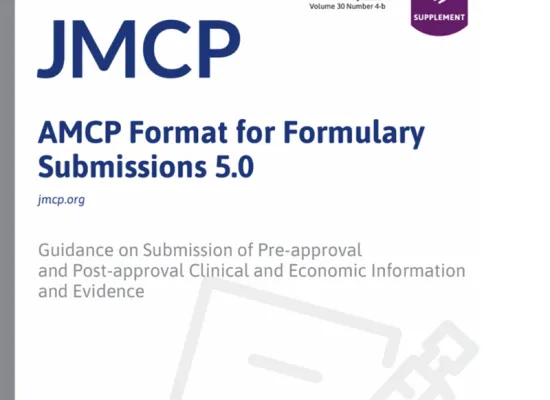


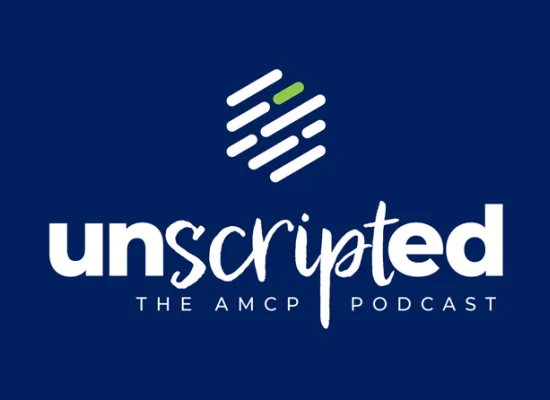
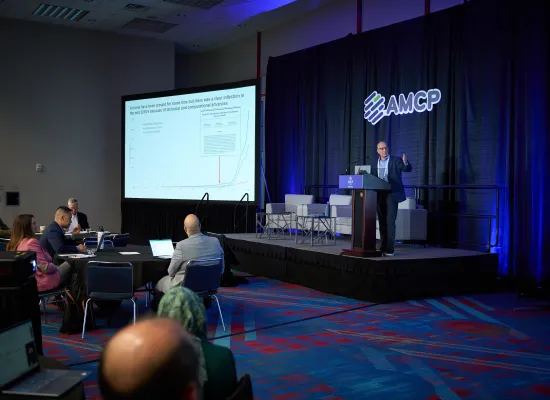
-
Health Information Technology Resources
-
Digital Therapeutics Resources
-
Health Disparities Resources
-
Value-Based Contracts Resources
Meetings Proceedings & Findings
View More
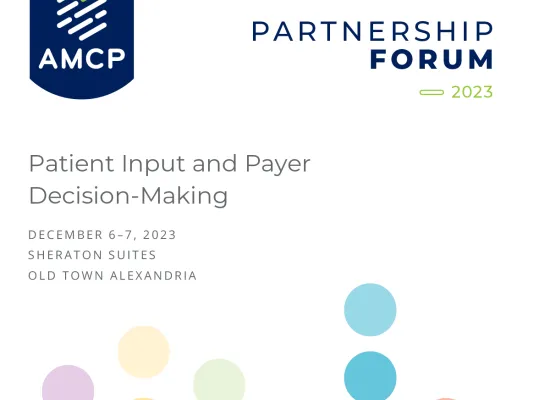

Latest News & Resources
AMCP webinar that reviewed a summary of discussions from this summit.
AMCP webinar that reviewed a summary of discussions from this summit.
AMCP CEO Blog: With PA so often misunderstood, perhaps we need to do a better job of explaining this tool to the general public. For example, we might provide an example of how PAs are applied to opioids as additional safeguards to ensure their appropriate use. Or how a PA might be applied to botulinum toxin to ensure the prescription is for medical, rather than cosmetic, purposes.
Recognizing the widespread and devastating nature of the opioid crisis, AMCP formed the Addiction Treatment Advisory Group in 2015 based on the recommendation from the AMCP Partnership Forum, Breaking the Link between Pain Management and Opioid Use Disorder.
AMCP CEO Blog: We live in an interconnected world where the marketplace for all things is global. But we must also make sure the global system works for the benefit of the patients we serve. That includes taking steps to ensure the long-term stability and integrity of our critical pharmaceutical supply chain.
Health plans, employers and government-sponsored health care programs are focusing their attention on optimizing patient outcomes through the use of medications that have established evidence of efficacy and safety, while providing the highest value.
Disease management is the concept of reducing health care costs and improving quality of life for individuals with chronic conditions by preventing or minimizing the effects of the disease through integrated care. Disease management programs are designed to improve the health of persons with chronic conditions and reduce associated costs from avoidable complications by identifying and treating chronic conditions more quickly and more effectively, thus slowing the progression of those diseases.
Congress passed the Health Insurance Portability and Accountability Act (HIPAA) in 1996. Within that Act are privacy provisions with which covered entities (including all health plans, health care providers and health care clearinghouses [e.g. PBMs] that transmit any health information in electronic form must comply. HIPAA rules provide guidance to covered entities about how to comply with the Act.
The purpose of this paper is to explain how managed care organizations (MCOs) are able to secure lower drug prices from pharmaceutical manufacturers as part of an effort to control drug expenditures.
Over the past several years, the introduction, utilization and cost share of specialty pharmacy products has been increasing at a rate substantially greater than that of other pharmaceuticals. This paper examines the characteristics of specialty pharmaceuticals; the growth of new expertise to handle and manage these pharmaceuticals; and the needs these products create for patients, health plans and practitioners.
Drug utilization review (DUR) is defined as an authorized, structured, ongoing review of prescribing, dispensing and use of medication. DUR encompasses a drug review against predetermined criteria that results in changes to drug therapy when these criteria are not met.
E-prescribing is the use of health care technology to improve prescription accuracy, increase patient safety, and reduce costs as well as enable secure, real-time, bi-directional, electronic connectivity between clinicians and pharmacies. This is achieved by providing prescribers with a secure means of electronically accessing health plan formulary, patient eligibility, and medication history at the point of care and securely transmitting the prescription electronically into the pharmacy’s computer system.
